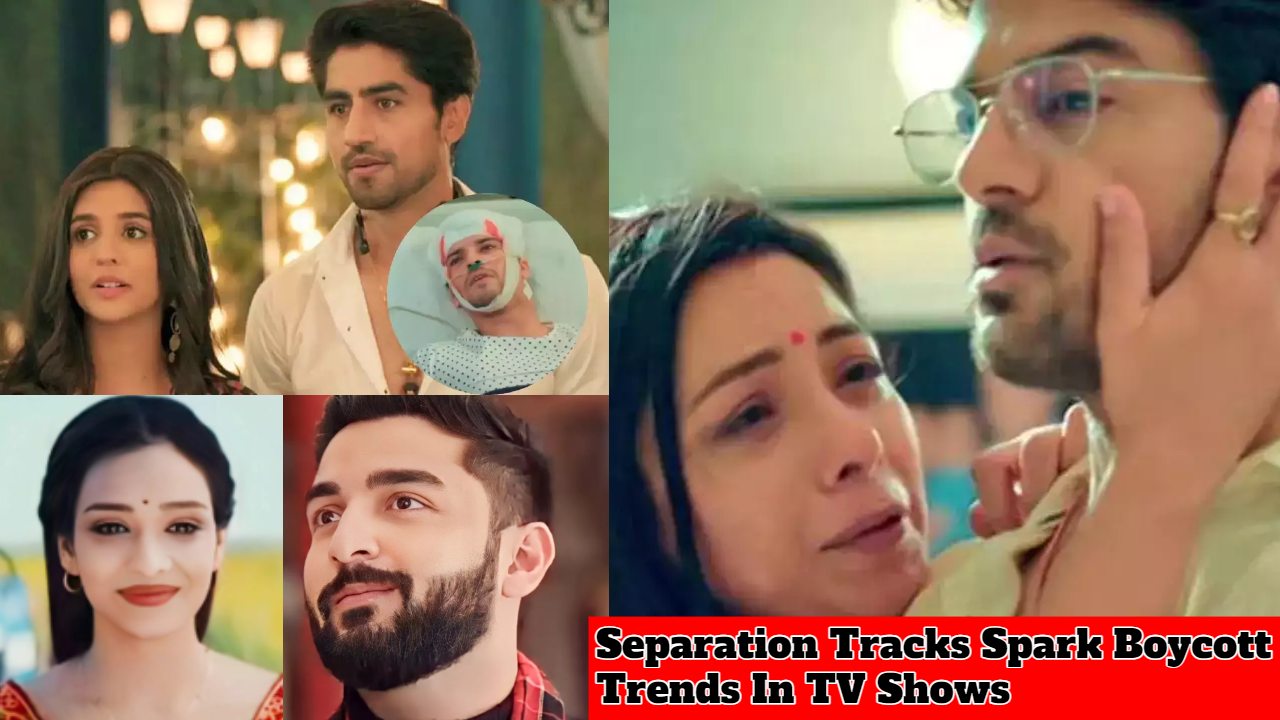Separation tracks in television dramas have become a contentious issue among fans, sparking widespread discontent and even boycott trends on social media platforms. The recent examples from popular shows like Yeh Rishta Kya Kehlata Hai, Anupamaa, and Bhagya Lakshmi have reignited the debate over the creative decisions made by the makers.
When YRKKH opted for yet another separation track for the beloved AbhiRa (Abhimanyu aka Harshad Chopda and Akshara aka Pranali Rathod), fans expressed their dismay through trending hashtags like #BoycottYRKKH and #NoYRKKHNoAbhiRa. The repeated separation of a cherished on-screen couple just a month after their reunion left viewers disheartened. The storyline, involving tragic circumstances leading to separation and miscarriage, felt like a damage to the characters and their journey, leaving fans questioning the direction of the show.
Similarly, in Anupamaa, the separation of Anuj and Anupama played by Gaurav Khanna and Rupali Ganguly came as a shock to many loyal viewers. The misunderstanding that drove them apart led to a backlash from fans who felt that the characters were not given the growth and respect they deserved. The social media campaign urging the makers to reconsider the track highlighted the passionate investment fans have in the well-being of their favorite characters.
Bhagya Lakshmi also faced criticism for its separation plot, where Rishi’s (Rohit Suchanti) lack of trust in Lakshmi (Aishwarya Khare) resulted in her departure and a tragic accident. The leap in time further strained the patience of fans who found the storyline disheartening and unrealistic. These instances reflect a broader pattern in television dramas, where separation tracks often lead to fan outrage and boycott trends. Whether it’s Preeta and Karan (Shraddha Arya and Dheeraj Dhoopar) in Kundali Bhagya, Pragya and Abhi (Sriti Jha and Shabir Ahluwalia), Prachi and Ranbir (Mugdha Chaphekar and Krishna Kaul) in Kumkum Bhagya, or Naira and Kartik (Shivangi Joshi and Mohsin Khan) in Yeh Rishta Kya Kehlata Hai, the sentiment remains the same – fans reject narratives that tear apart beloved couples or characters.
Ultimately, the success of television dramas relies heavily on viewer engagement and satisfaction. While conflict and drama are integral to storytelling, it’s essential for creators to strike a balance that respects the emotional investment of their audience. The repeated use of separation tracks risks alienating fans and undermining the integrity of the narrative. As viewers continue to voice their displeasure through boycott trends and social media campaigns, it’s a reminder for showrunners to listen to their audience and prioritize storytelling that resonates positively with viewers.


